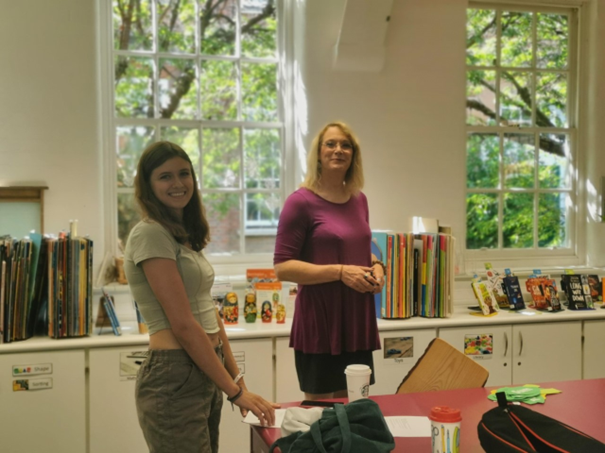Project Summary

Aim
This project worked with university students, parents and teachers of a local primary school to co-produce approaches to supporting LGBTQ+ youngsters. The aims were:
- to identify parents’ and teachers’ perceptions and concerns of a range of LGBTQ+ related issues.
- to develop approaches to provide support and training to parents and teachers to engage with young children more confidently and effectively around LGBTQ+ issues.
We worked with University of Reading students, who identify as LGBTQ+ and used their life stories, as a stimulus for working with parents and teachers of primary aged children. We explored a range of issues and concerns around LGBTQ+ matters, and held workshops with these students, parents and teachers to co-produce approaches that can be used to support conversations around LGBTQ+ issues in school and at home. Although there have been projects examining LGBTQ+ issues in primary schools, these overwhelmingly focused on teachers; this project was innovative in getting LGBTQ+ university students and parents involved in working with teachers as research partners.
Rationale
It is known that LGBTQ+ youngsters suffer disproportionate amounts of victimization in schools (Harris, Wilson-Daily & Fuller, 2021a; Stonewall, 2017). It is also known that such students are more likely to feel isolated (Harris, Wilson-Daily & Fuller, 2021b) and that isolation is associated with significant longer term mental health issues (Higa et al, 2014; Hussong et al, 2019). However, studies show that students who are supported in developing a strong sense of identity demonstrate greater resilience in the longer term (Chen et al, 2012; Kosciw, Palmer & Kull, 2015). Yet most interventions cited in the literature are focused on secondary school students, which overlooks the fact that children typically develop the ability to recognise gender by the time they are 3 years old, and that children, who identity as LGBTQ+, often question their sexual and gender identity whilst in primary school. The fact that there is a gap between children questioning their identity at primary school yet often not coming out until some point in secondary school means children can be left isolated and without the support needed to navigate complex issues at this crucial stage in their identity development. This can easily create significant mental health issues in both the short and longer term, as well as impact on educational attainment (and subsequent life chances).
There have been some projects directed towards primary schools, notably the No Outsiders Project (e.g. DePalma & Atkinson, 2009), but this project focused largely on working with teachers, and became the subject of national media attention, following hostile demonstrations from parents and local community groups, who fundamentally objected to the work being undertaken, and who felt they had not been consulted. The inclusion of parents, as major stakeholders, in the process of addressing such a sensitive issue is an important issue that needs to be addressed (Cumming-Potvin & Martino, 2018; Eisenberg et al, 2012; Kambouri et al., 2021).
By including various participants in this project, working as research partners to address an area that is both sensitive and would provide support to young people, we anticipate the project could have a significant longer term positive impact on the lives of LGBTQ+ young people.
